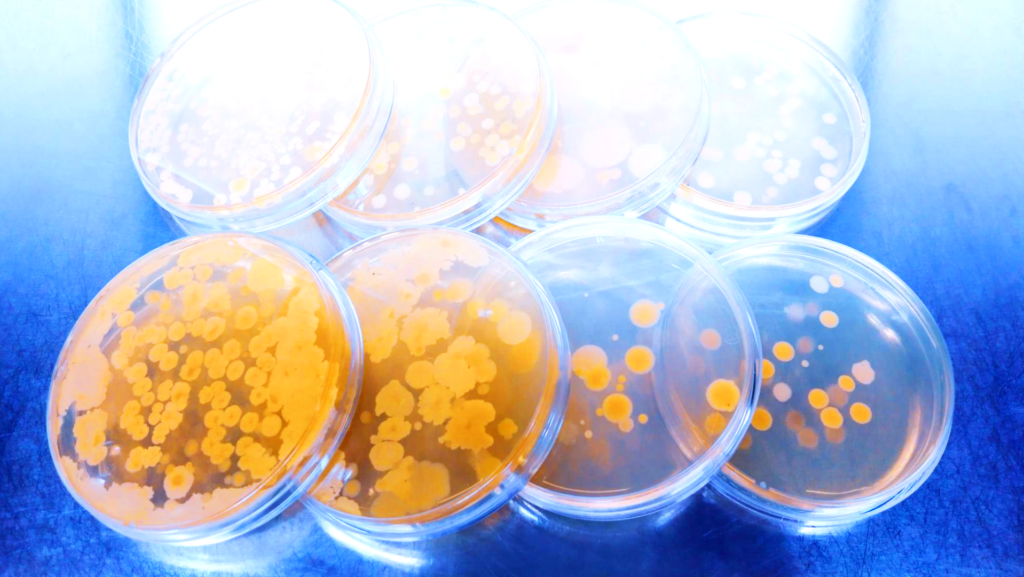
Life’s a gas no longer

Methane-eating microbes threaten natural gas reserves
- Dateline
- 12 April 2030
When climate concerned biochemists were looking for ways to reduce potent greenhouse gasses, they developed bacteria that could curtail methane emissions by consuming the gas as food. A startup backed by Whole Foods was soon at work, cleaning up pollution at dairy farms and producing organic fertilizer as a byproduct.
Initially they used a cocktail of microbes naturally found in soil, and bred them to be more efficient and thrive on a high-methane diet. Oil and gas companies also turned to this method of reducing emissions and converting gas that would have been flared off into a valuable product for organic farming; even better than synthetic fertilizer, and much kinder to the environment.
Then the biotech boffins got in on the act, and started tinkering with genes and things. Soon they had an enhanced synthetic organism (ESO) that eats methane like it’s on steroids and breeds like crazy. Finally we had a scalable solution to the threat of methane emissions from thawing permafrost and rotting landfills. Launched at COP32, the methane busting ESO was greenlighted for global use in the climate fight.
Farmers rejoiced as EU restrictions on operations were relaxed and herds could be expanded once more. But then worrying reports emerged from Russia and Qatar. It seems the novel microbe is so good at consuming methane, natural gas production has dropped significantly.
“We’re getting far too much nitrogen coming out of the fields, and not enough pure methane,” complained one Gazprom executive. “Something is eating our gas!” As we reduce our reliance on coal and oil, gas becomes a critical energy source, and now it’s under threat.
It’s back to the lab for the biotech wizards. Can they develop a microbe that produces hydrogen instead? And can they introduce a gene drive that kills off the rogue ESO? The warning is clear. When you experiment with nature, beware of unintended consequences!
Links to related stories
Warning: Hazardous thinking at work
Despite appearances to the contrary, Futureworld cannot and does not predict the future. Our Mindbullets scenarios are fictitious and designed purely to explore possible futures, challenge and stimulate strategic thinking. Use these at your own risk. Any reference to actual people, entities or events is entirely allegorical. Copyright Futureworld International Limited. Reproduction or distribution permitted only with recognition of Copyright and the inclusion of this disclaimer.